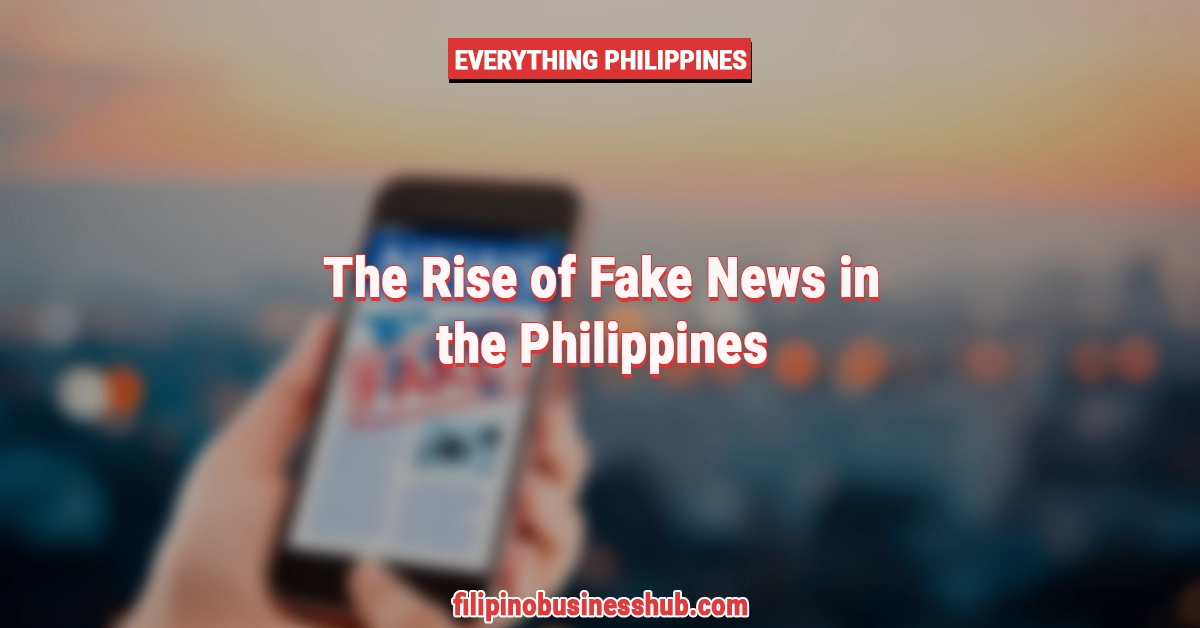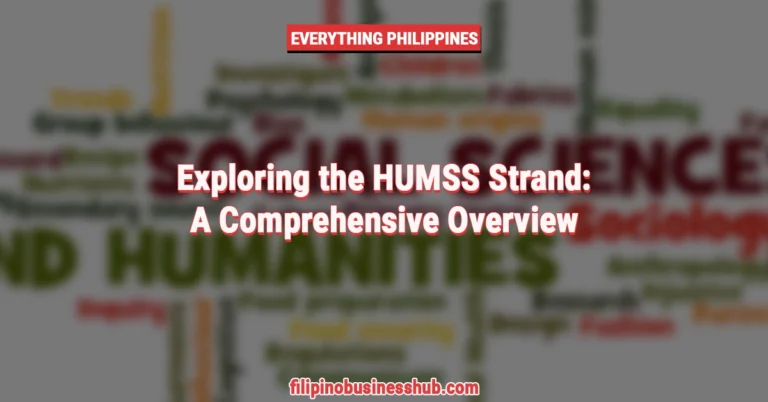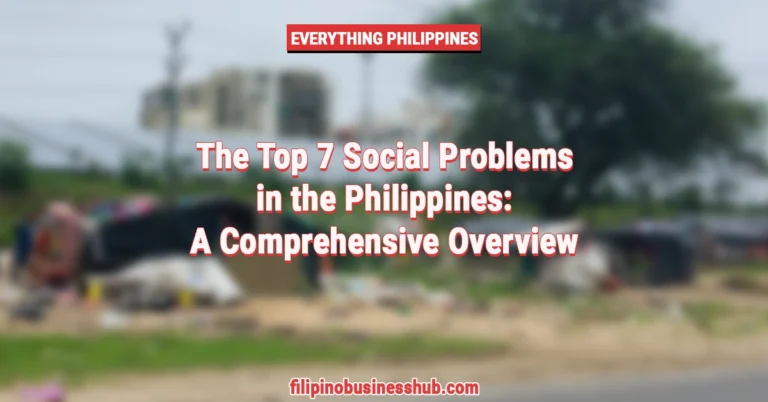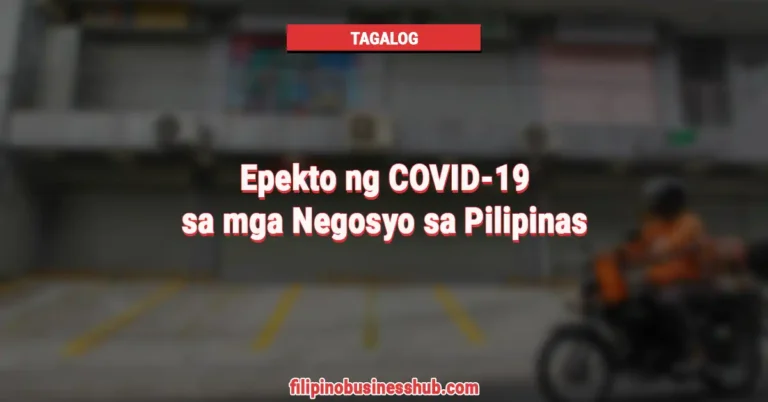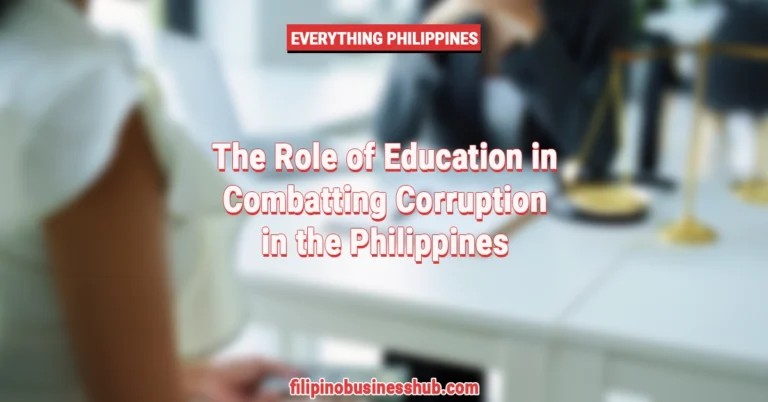The Rise of Fake News in the Philippines: Causes, Impact, and Solutions
Fake News in the Philippines and Its Prevalence
Fake news refers to false or misleading information presented as factual news, often disseminated through various media platforms. In recent years, the spread of fake news has become a global concern, and the Philippines is not immune to its impact. The country has witnessed a significant rise in the proliferation of fake news, particularly in the digital age, where information spreads rapidly and reaches a wide audience. This section will clearly define fake news and highlight its prevalence in the Philippines.
This article aims to delve into the multifaceted issue of fake news in the Philippines, examining its causes, assessing its impact on society, and exploring potential solutions. By understanding the root causes behind the spread of fake news, recognizing its consequences on various aspects of Philippine society, and identifying effective strategies to address this issue, we can work towards fostering a more informed and resilient society. Through this exploration, we aim to shed light on the complex dynamics surrounding fake news and contribute to the ongoing efforts to combat misinformation in the Philippines.
Table of Contents
Causes of Fake News in the Philippines
Proliferation of Social Media and Digital Platforms
The widespread availability and accessibility of social media and digital platforms have played a significant role in disseminating fake news in the Philippines. Social media platforms provide a fertile ground for the rapid spread of information, often without proper verification. The ease of sharing content, coupled with the algorithmic nature of these platforms, allows fake news to reach a wide audience quickly. The viral nature of social media amplifies the impact of fake news, making it a potent tool for those seeking to manipulate public opinion.
Political Motivations and Propaganda
Fake news has become a tool for political actors to manipulate public perception and advance their agendas. In the Philippines, political motivations often drive the creation and dissemination of fake news. Political campaigns, rivalries, and conflicts can fuel the intentional spread of false information to discredit opponents, shape public opinion, or gain a competitive advantage. Fake news is frequently used as a form of propaganda, targeting vulnerable populations and exploiting their biases and fears.
Lack of Media Literacy and Critical Thinking Skills
The lack of media literacy and critical thinking skills among a significant portion of the population contributes to the effectiveness of fake news in the Philippines. People must question its credibility and sources before consuming news and information. Without the necessary skills to evaluate information critically, individuals are more susceptible to manipulation and are prone to accepting false narratives. Improving media literacy education and promoting critical thinking are crucial in empowering individuals to discern reliable information from fake news.
Economic Incentives and Clickbait Culture
The economic incentives associated with generating web traffic and maximizing advertising revenue contribute to the Proliferation of fake news. In the digital era, clickbait culture has emerged, where sensationalized and misleading headlines are used to attract attention and generate clicks. This race for website traffic and ad revenue can incentivize the creation of false or exaggerated news stories. The profit-driven nature of the digital media landscape creates an environment where fake news can thrive, as the financial rewards associated with viral content outweigh ethical considerations.
Understanding these causes provides insight into the complex web of factors contributing to the rise of fake news in the Philippines. Addressing these causes requires a multifaceted approach that involves regulation, media literacy initiatives, and efforts to promote critical thinking skills. By tackling these root causes, we can work towards mitigating the impact of fake news and fostering a more informed society.
Impact of Fake News on Philippine Society
Erosion of Trust in Traditional Media and Institutions
The proliferation of fake news has led to a decline in trust in traditional media and institutions in the Philippines. When false information is presented alongside legitimate news, it becomes increasingly difficult for the public to differentiate between them. As a result, trust in established media organizations and traditional institutions diminishes, which can have far-reaching implications for an informed and democratic society.
Influence on Public Opinion and Decision-making Processes
Fake news can shape public opinion and influence decision-making processes in the Philippines. Misleading narratives and fabricated stories can sway public sentiment, affecting how individuals perceive issues, events, and even political candidates. When false information is presented as factual, it can distort public discourse and lead to misguided decisions at personal, community, and societal levels.
Social Divisions and Polarization
Fake news has been a catalyst for social divisions and polarization within Philippine society. False narratives, particularly those with inflammatory or divisive content, can deepen existing societal fault lines. The spread of fake news can amplify existing biases, fuel hostility between different groups, and undermine social cohesion. This can create a fragmented society, hindering constructive dialogue and collective action.
Consequences for Democracy and Elections
Fake news poses significant challenges to the democratic processes and electoral integrity in the Philippines. Dissemination of false information during elections can manipulate voter perceptions, undermine trust in electoral systems, and distort election outcomes. The deliberate spread of fake news targeting political candidates or parties can tarnish reputations, hinder fair competition, and erode public confidence in democratic institutions.
Understanding the impact of fake news on Philippine society is crucial for recognizing the urgency of addressing this issue. The erosion of trust, the manipulation of public opinion, social divisions, and the threats to democratic processes demand concerted efforts to counteract the harmful effects of fake news. Promoting media literacy, encouraging critical thinking, and fostering a culture of responsible information consumption can mitigate the impact of fake news and safeguard the well-being of Philippine society.
Addressing the Issue: Current Efforts and Challenges
Fact-checking Organizations and Initiatives
In response to the rise of fake news, fact-checking organizations and initiatives have emerged in the Philippines. These organizations employ trained professionals who verify the accuracy of news stories, identify misinformation, and provide reliable information to the public. Fact-checkers play a crucial role in debunking false narratives and promoting factual reporting. Their efforts help raise awareness about fake news and contribute to a more informed public discourse.
Collaboration Between Government, Media, and Civil Society
Addressing the issue of fake news requires collaboration between various stakeholders, including the government, media organizations, and civil society. Governments can enact policies that promote media literacy education, support fact-checking initiatives, and establish guidelines for responsible journalism. Media organizations can uphold ethical standards, prioritize accuracy, and actively participate in debunking false information. Civil society organizations, including NGOs and community groups, can engage in grassroots initiatives to promote media literacy, raise awareness, and empower individuals to navigate the digital information landscape responsibly.
Legal and Regulatory Measures
Governments in the Philippines have started introducing legal and regulatory measures to combat fake news. These measures aim to hold individuals and entities accountable for the deliberate spread of false information. However, the implementation of such measures should be balanced to avoid infringing on freedom of expression and press freedom. Striking the right balance requires careful consideration of the legal framework and collaboration between relevant stakeholders.
Challenges in Combating Fake News
Despite the efforts to combat fake news, several challenges persist. Technology advancements have made it easier for fake news to be created, disseminated, and amplified. The rapid spread of misinformation through social media platforms, messaging apps, and online communities poses significant challenges for detection and mitigation. Misinformation networks, often organized and coordinated, exploit the vulnerabilities of these platforms and employ strategies to evade detection. Tackling these challenges requires continuous adaptation and innovation in technological solutions and international cooperation to address cross-border issues.
Addressing the issue of fake news in the Philippines necessitates a comprehensive and multi-pronged approach. By strengthening fact-checking efforts, fostering collaboration between stakeholders, implementing effective legal measures, and adapting to technological advancements, it is possible to mitigate the spread and impact of fake news. Overcoming the challenges posed by misinformation networks requires a collective effort to promote media literacy, critical thinking, and responsible digital citizenship in the Philippines and beyond.
Promoting Media Literacy and Critical Thinking
Importance of Media Literacy Education in Schools and Communities
Media literacy education is crucial in equipping individuals with the necessary skills to navigate the complex information landscape. Introducing media literacy programs in schools and communities can empower individuals to critically analyze news sources, identify bias and misinformation, and understand the impact of fake news on society. By fostering a media-literate generation, we can cultivate a more discerning and responsible population in consuming and sharing information.
Building Critical Thinking Skills to Discern Reliable Information
Critical thinking skills are essential in the face of fake news. Educating individuals on critical thinking techniques, such as evaluating evidence, questioning sources, and considering multiple perspectives, can help them distinguish reliable information from falsehoods. By encouraging critical thinking, we enable individuals to approach news and information with skepticism and engage in informed decision-making based on reliable evidence.
Empowering Individuals to Verify and Evaluate News Sources
Empowering individuals to verify and evaluate news sources is crucial in the fight against fake news. Providing resources and tools that enable individuals to fact-check information, cross-reference sources, and assess the credibility of news outlets can enhance media literacy. Encouraging individuals to seek diverse sources of information and consult reputable news organizations helps foster a more informed public.
Promoting Responsible Information Sharing and Digital Citizenship
Responsible information sharing and digital citizenship are integral to combating spreading fake news. Promoting ethical guidelines for online behavior, such as verifying information before sharing, avoiding the amplification of misinformation, and promoting respectful dialogue, can contribute to a healthier information ecosystem. Encouraging individuals to be mindful of their online interactions and the potential consequences of sharing false information helps curb disseminating of fake news.
By prioritizing media literacy education, building critical thinking skills, empowering individuals to evaluate news sources, and promoting responsible information sharing, we can strengthen society’s resilience against fake news. These efforts should extend beyond formal education and engage various sectors of society, including media organizations, community groups, and technology companies. Promoting media literacy and critical thinking is an ongoing endeavor that requires collective action and continuous adaptation to address the evolving challenges of the digital age.
Enhancing Digital Literacy and Verification Skills
Recognizing Fake News Indicators and Red Flags
Developing the ability to recognize fake news indicators and red flags is crucial in navigating the digital landscape. Educating individuals on common tactics used in spreading misinformation, such as clickbait headlines, sensationalism, and manipulated images, helps them become more vigilant news consumers. Teaching people to be skeptical of information that aligns with their existing beliefs and encouraging them to consider multiple perspectives can further enhance their ability to identify potential instances of fake news.
Teaching Techniques for Fact-checking and Verification
Equipping individuals with techniques for fact-checking and verification is essential in combating fake news. Teaching them to cross-reference the information with multiple reliable sources, verify the credibility of authors and publications, and evaluate the supporting evidence helps instill critical thinking skills. Introducing fact-checking tools and resources that aid in verifying the accuracy of information empowers individuals to assess the reliability of news stories independently.
Promoting Digital Hygiene and Responsible Online Behavior
Promoting digital hygiene and responsible online behavior is integral to countering fake news. Encouraging individuals to practice good online habits, such as verifying information before sharing, being mindful of privacy settings, and avoiding the spread of rumors or unverified claims, helps maintain a healthier digital ecosystem. Teaching individuals about the potential consequences of sharing false information and the importance of responsible information sharing fosters a sense of digital citizenship.
Engaging With Credible Sources and Diverse Perspectives
Encouraging individuals to engage with credible sources and seek out diverse perspectives is essential for combating the influence of fake news. Promoting media literacy education that emphasizes the importance of consulting reputable news organizations, fact-checking websites, and authoritative sources helps individuals access reliable information. Encouraging dialogue and critical discussion among diverse communities can also counteract echo chambers and enhance understanding of complex issues.
By enhancing digital literacy and verification skills, individuals can become more discerning consumers and sharers of information. Recognizing fake news indicators, practicing fact-checking techniques, promoting responsible online behavior, and engaging with credible sources and diverse perspectives all contribute to a more informed and resilient society. These efforts should be integrated into educational curricula, digital literacy programs, and community initiatives to ensure a comprehensive approach to addressing the challenges posed by fake news in the digital age.
Collaborative Efforts for Media Integrity and Accountability
Strengthening Media Ethics and Professional Standards
Strengthening media ethics and professional standards is crucial in ensuring media integrity and combating fake news. Media organizations should adhere to ethical guidelines that promote accuracy, fairness, and impartiality in reporting. Emphasizing the importance of responsible journalism, fact-checking, and verification processes within newsrooms helps maintain media outlets’ credibility and fosters public trust.
Encouraging Responsible Reporting and Fact-based Journalism
Encouraging responsible reporting and fact-based journalism is essential for countering fake news. Media organizations should prioritize thorough research, sourcing, and verification of information before publishing or broadcasting stories. Promoting editorial policies prioritizing evidence-based reporting, independent verification, and correcting errors or inaccuracies helps ensure the dissemination of reliable information to the public.
Fostering Transparency and Accountability in Media Organizations
Fostering transparency and accountability within media organizations is key to building public trust. Media outlets should strive to be transparent about their sources, affiliations, and potential conflicts of interest. Implementing robust editorial review processes, maintaining precise corrections and retractions policies, and providing avenues for public feedback and accountability mechanisms contribute to media organizations’ integrity and credibility.
Engaging the Public in Media Monitoring and Feedback Mechanisms
Engaging the public in media monitoring and feedback mechanisms empowers individuals to hold media organizations accountable. Encouraging the public to report instances of misinformation or biased reporting helps identify and address potential fake news. Media organizations can establish accessible channels for public feedback, such as dedicated email addresses or online platforms, to facilitate dialogue and address concerns the audience raises.
Collaborative efforts among media organizations, regulatory bodies, and the public are vital in promoting media integrity and accountability. By strengthening media ethics and professional standards, encouraging responsible reporting, fostering transparency, and engaging the public in media monitoring, we can establish a media landscape that prioritizes accuracy, credibility, and public interest. Together, these efforts contribute to a healthier media ecosystem and help mitigate the impact of fake news on society.
Recommended Read: 10 Contemporary Issues in the Philippines 2023
Conclusion
Fake news has become a prevalent issue in the Philippines, fueled by factors such as the proliferation of social media, political motivations, lack of media literacy, and economic incentives. Its impact is far-reaching, eroding trust in traditional media and institutions, influencing public opinion and decision-making processes, fostering social divisions, and posing threats to democracy and elections.
Addressing the rise of fake news requires collective action and collaboration among various stakeholders. Media organizations, government agencies, civil society groups, educators, and individuals all have a role to play in combating fake news. By working together, we can pool resources, expertise, and influence to implement effective strategies and initiatives.
The fight against fake news is an ongoing endeavor that demands continuous efforts and adaptation. Promoting media literacy and critical thinking, enhancing digital literacy and verification skills, fostering media integrity and accountability, and engaging in collaborative efforts are crucial steps in countering the spread and impact of fake news. It is important to recognize that this issue is not solely the responsibility of one entity or sector but requires the collective commitment of society as a whole.
Tackling fake news in the Philippines requires a multi-faceted approach that addresses its causes, understands its impact, and implements effective solutions. By promoting media literacy, encouraging responsible reporting, fostering transparency, engaging the public, and nurturing a culture of critical thinking, we can build a more resilient and informed society. Let us continue our efforts to combat fake news, protect the integrity of information, and uphold the value of truth in the Philippines.
